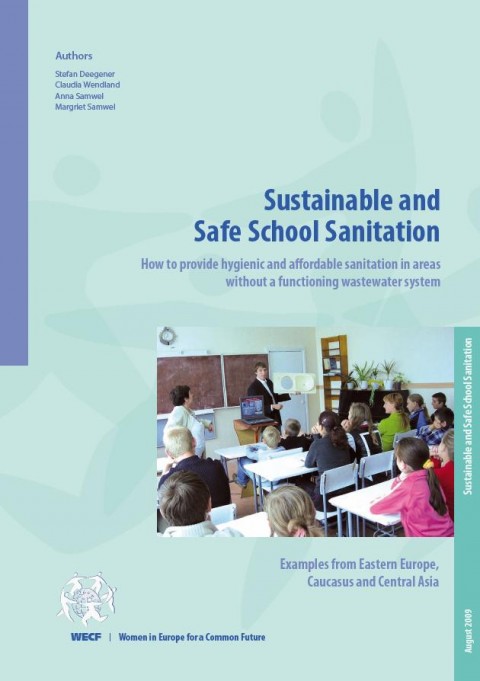Sustainable and safe school sanitation How to provide hygienic and affordable sanitation in areas without a functioning wastewater system. Examples from Eastern Europe, Caucasus and Central Asia Deegener, S. et al. (2009)
Bibliographic information
Deegener, S. et al. (2009). Sustainable and safe school sanitation How to provide hygienic and affordable sanitation in areas without a functioning wastewater system. Examples from Eastern Europe, Caucasus and Central Asia Women in Europe for a Common Future (WECF), The Netherlands, Germany, France
Filter / Tags
Sustainable WASH in institutions and gender equality (WG7)Urine diversion dehydration toilets (UDDTs) Faeces or faecal sludgeUrineSchoolsPractitionersEnglish

